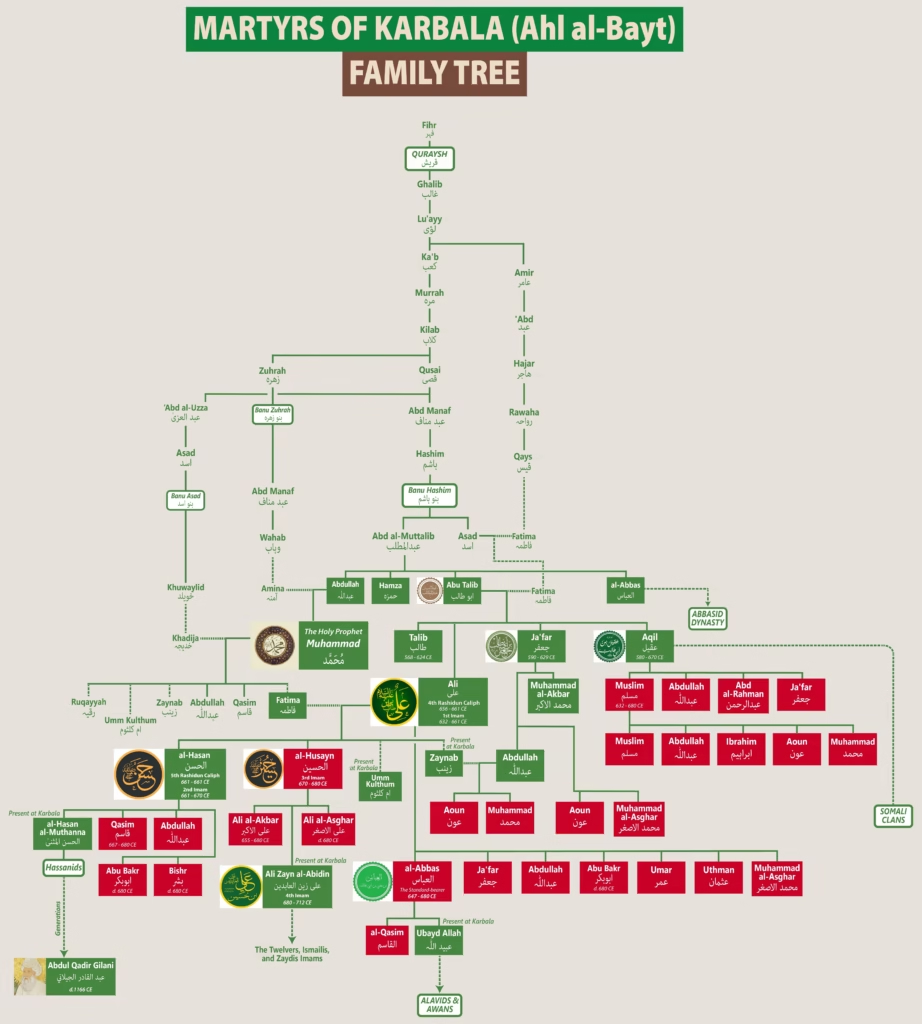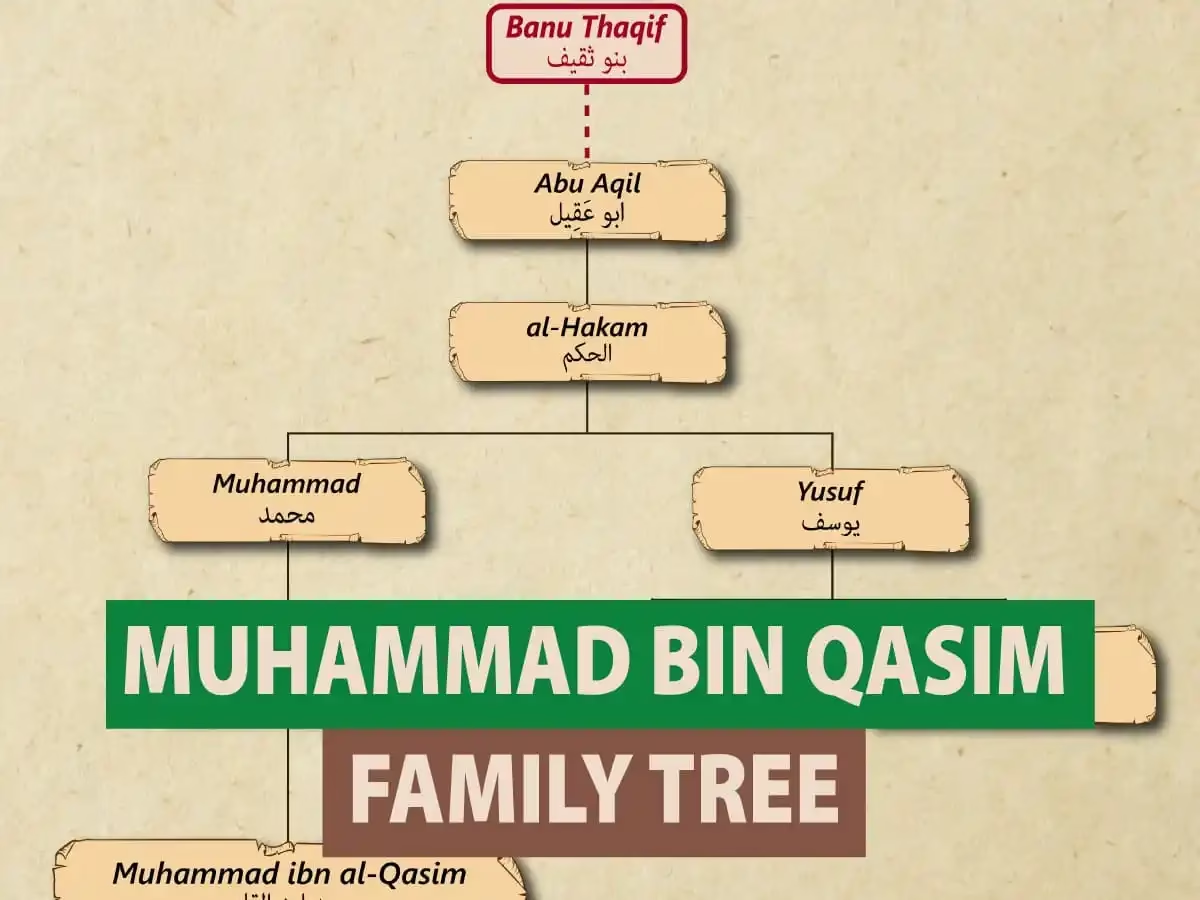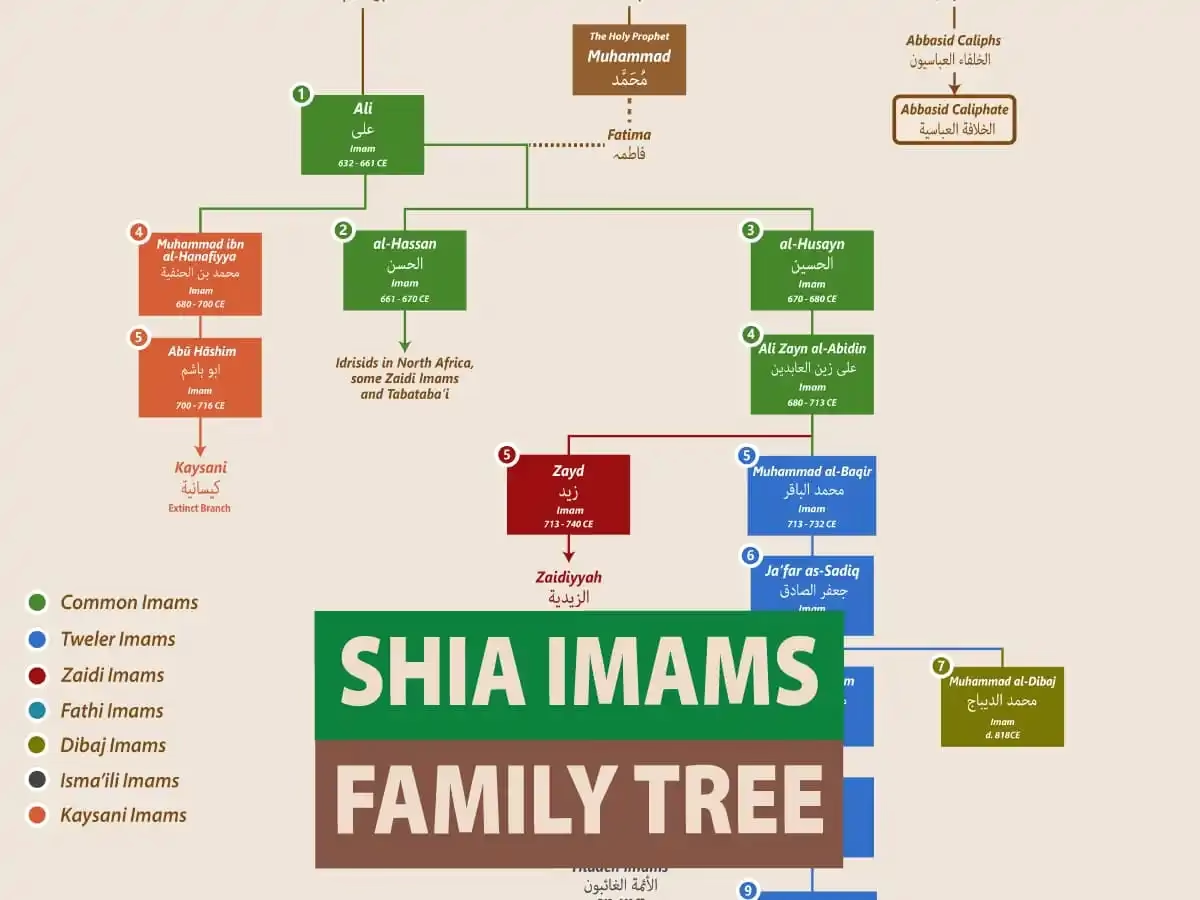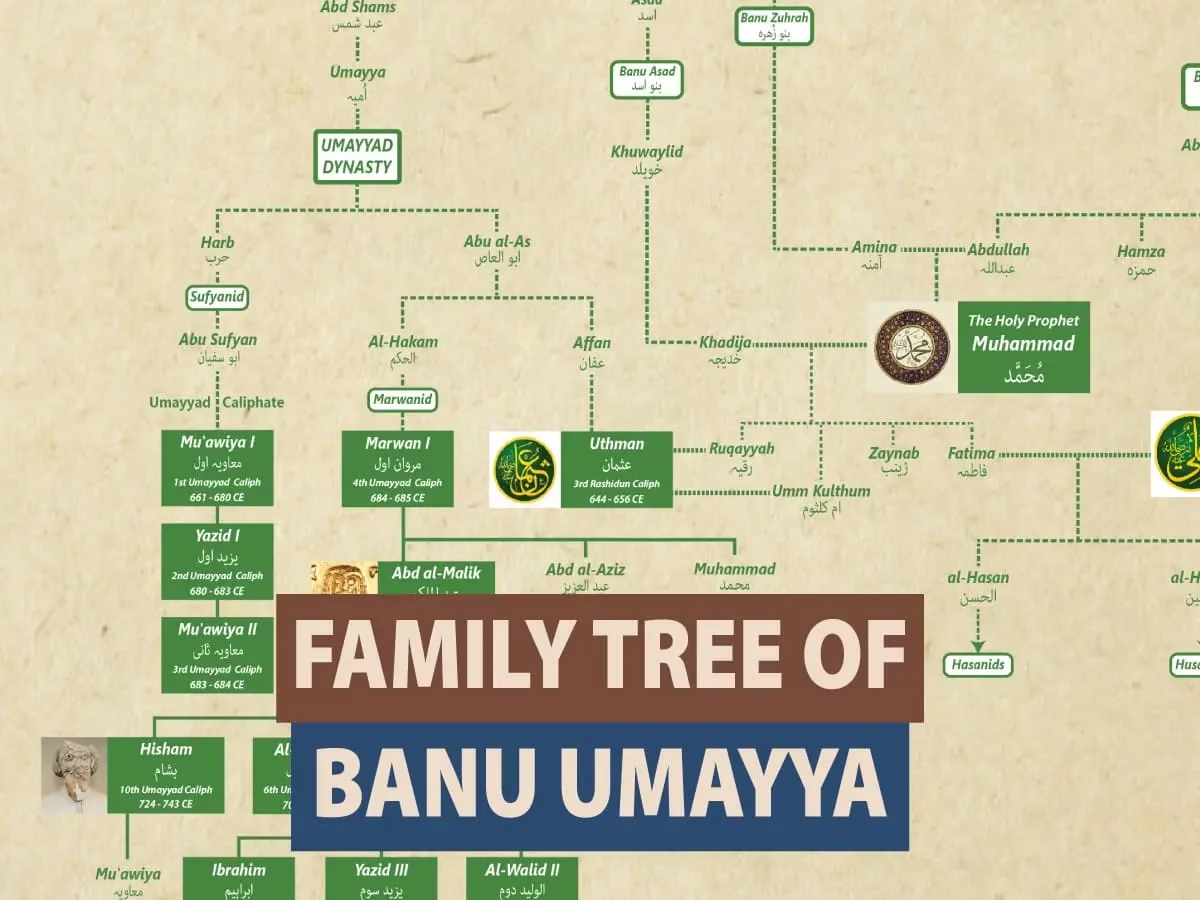The tragedy of Karbala is not just a moment in Islamic history—it’s a deeply emotional story of sacrifice, loyalty, and faith. The family tree of the martyrs of Karbala, as seen in the visual chart, tells us how deeply the sacrifice of Imam Hussain and his family was rooted in the noble lineage of the Prophet Muhammad (PBUH).

A Noble Lineage – From Banu Hashim to Karbala
The family tree starts from the noble tribe of Quraysh, through Hashim, and leads us to Abdul Muttalib, the grandfather of the Prophet Muhammad (PBUH). From Abdul Muttalib came several important figures in early Islam:
- Abdullah, the father of the Prophet Muhammad (PBUH),
- Abu Talib, the father of Imam Ali,
- Hamza, the uncle and martyred warrior of Islam,
- al-Abbas, whose descendants would later establish the Abbasid Caliphate.
This tree is rooted in love and service to Islam, and its branches extend all the way to the burning sands of Karbala.
See Also: Prophet Muhammad (PBUH) Family Tree
Imam Ali al-Murtada – The Father of Martyrs
Imam Ali, the cousin and son-in-law of the Prophet Muhammad (PBUH), is the central figure in this family tree. His sons played critical roles in Islamic history—most notably:
- Imam Hasan, known for his peace treaty with Muawiya to protect the Muslim Ummah from civil war.
- Imam Hussain, the younger brother, who chose to stand for justice even if it meant sacrificing everything.
Ali’s other sons—Abbas ibn Ali, Ja’far ibn Ali, Uthman ibn Ali, Abu Bakr ibn Ali, and others—also stood shoulder to shoulder with Imam Hussain in Karbala. Most of them were martyred on the day of Ashura, defending the truth and resisting tyranny.
The Martyrs from Aqeel and Ja’far’s Lineage
The sons and grandsons of Aqeel ibn Abi Talib, the brother of Imam Ali, also gave their lives in Karbala. The most well-known among them is Muslim ibn Aqeel, who was sent to Kufa as Hussain’s representative but was betrayed and martyred even before the battle began.
Muslim’s young sons—Abdullah, Muhammad, Ibrahim, and others—were also killed in brutal circumstances. Some were even hunted down after escaping from prison. Their stories reflect the cruelty of the oppressors and the purity of the innocent martyrs.
Ja’far ibn Abi Talib, another brother of Imam Ali and known as “Tayyar” (the one who flies in Jannah), had sons Aun and Muhammad who also fought and were martyred at Karbala alongside their mother Zainab bint Ali.
Children and Youth – The Most Painful Sacrifices
Perhaps the most heart-wrenching part of this tree are the children of Karbala—Ali Akbar, the handsome son of Imam Hussain, who resembled the Prophet Muhammad (PBUH) in looks and manners, and Ali Asghar, the six-month-old infant who was martyred by an arrow in his father’s arms.
Then there was al-Qasim ibn Hasan, the teenage son of Imam Hasan, who fought bravely at the age of just 13 and was crushed beneath enemy horses.
Survivors and Legacy
Among the very few who survived the battle was Ali ibn Hussain (Zain ul Abideen), the only son of Imam Hussain who did not fight due to illness. It is through him that the lineage of Hussain continues, and many prominent Islamic scholars, including Imam Muhammad al-Baqir and Imam Ja’far al-Sadiq, are from his line.
See Also: Imam Ali Zayn ul Abideen Family Tree
One branch of this family leads to Abdul Qadir Gilani, one of the greatest Sufi saints, and another to the Alawis and Awans, who are respected sayyid clans across the world today.
Watch video on The Martyrs of Karbala Family Tree
Why This Family Tree Matters
This family tree isn’t just a chart of names—it is a map of courage. Every red name in the tree symbolizes a life that was given for justice, truth, and Islam. These were not ordinary people—they were sons, nephews, grandchildren, and cousins of the Prophet (PBUH).
Karbala was not a random battlefield. It was the stage where the best of humanity stood against oppression. Their legacy lives on not only in Shia Islam, but in the hearts of all Muslims who honor justice and truth.



